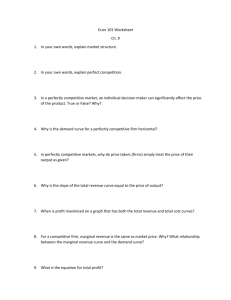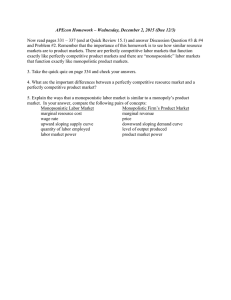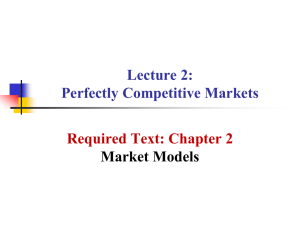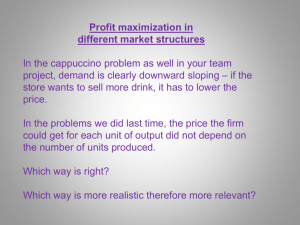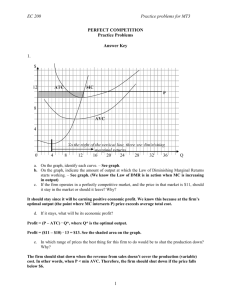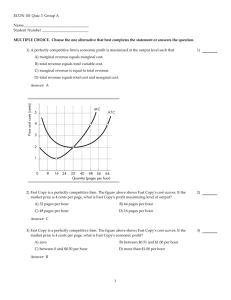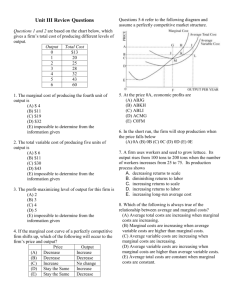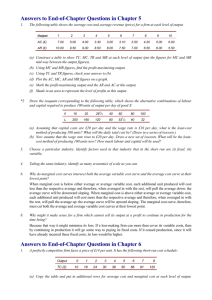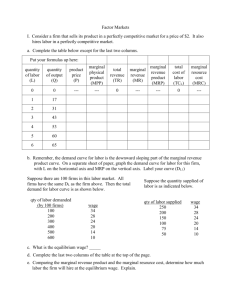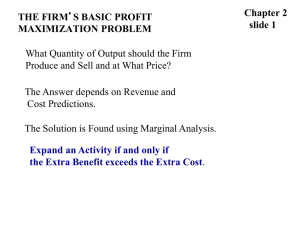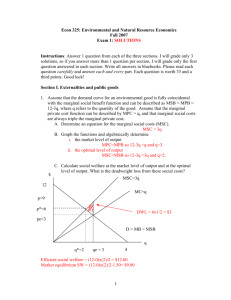Microeconomics: Prin., Apps., & Tools 6e (O`Sullivan)
advertisement
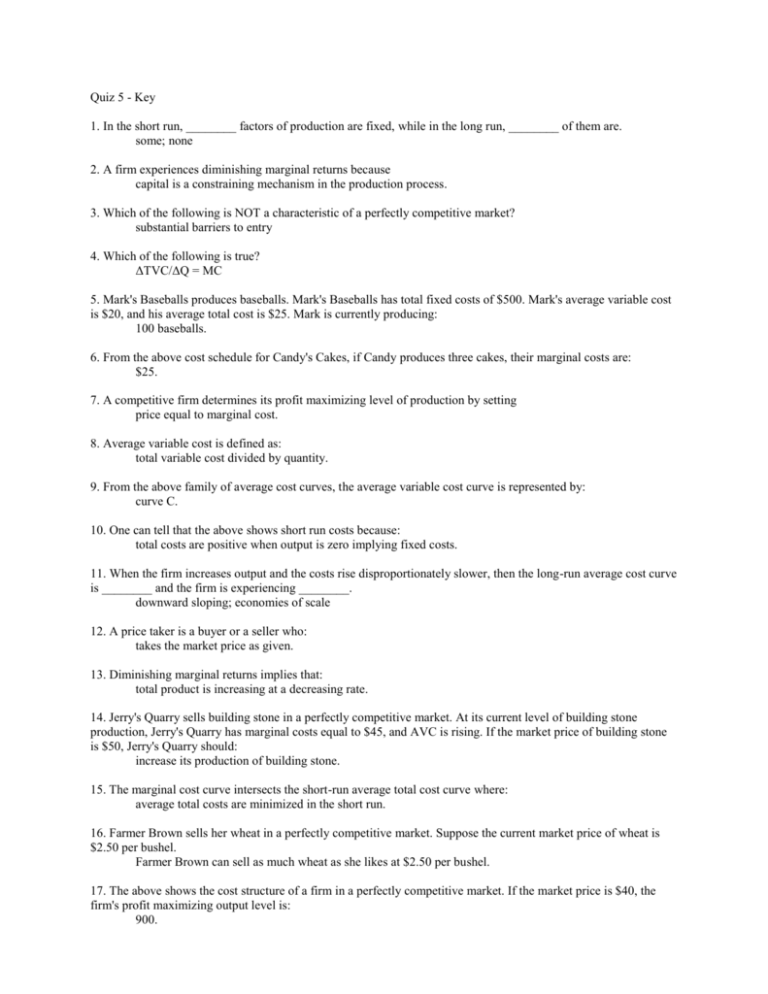
Quiz 5 - Key 1. In the short run, ________ factors of production are fixed, while in the long run, ________ of them are. some; none 2. A firm experiences diminishing marginal returns because capital is a constraining mechanism in the production process. 3. Which of the following is NOT a characteristic of a perfectly competitive market? substantial barriers to entry 4. Which of the following is true? ΔTVC/ΔQ = MC 5. Mark's Baseballs produces baseballs. Mark's Baseballs has total fixed costs of $500. Mark's average variable cost is $20, and his average total cost is $25. Mark is currently producing: 100 baseballs. 6. From the above cost schedule for Candy's Cakes, if Candy produces three cakes, their marginal costs are: $25. 7. A competitive firm determines its profit maximizing level of production by setting price equal to marginal cost. 8. Average variable cost is defined as: total variable cost divided by quantity. 9. From the above family of average cost curves, the average variable cost curve is represented by: curve C. 10. One can tell that the above shows short run costs because: total costs are positive when output is zero implying fixed costs. 11. When the firm increases output and the costs rise disproportionately slower, then the long-run average cost curve is ________ and the firm is experiencing ________. downward sloping; economies of scale 12. A price taker is a buyer or a seller who: takes the market price as given. 13. Diminishing marginal returns implies that: total product is increasing at a decreasing rate. 14. Jerry's Quarry sells building stone in a perfectly competitive market. At its current level of building stone production, Jerry's Quarry has marginal costs equal to $45, and AVC is rising. If the market price of building stone is $50, Jerry's Quarry should: increase its production of building stone. 15. The marginal cost curve intersects the short-run average total cost curve where: average total costs are minimized in the short run. 16. Farmer Brown sells her wheat in a perfectly competitive market. Suppose the current market price of wheat is $2.50 per bushel. Farmer Brown can sell as much wheat as she likes at $2.50 per bushel. 17. The above shows the cost structure of a firm in a perfectly competitive market. If the market price is $40, the firm's profit maximizing output level is: 900. 18. Using the above graph, if the market price is $40 and the firm is currently producing the profit maximizing output level, the firm's profit is: $9,000. 19. Which of the following is the best example of a competitive firm? Wilson's apple farm in eastern Washington
